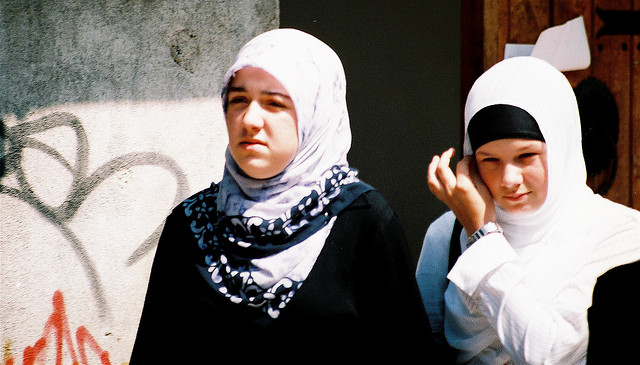Reasonability in the Wake of Paris and California
December 11, 2015
On November 13, an ISIS-affiliated terrorist cell committed a series of coordinated attacks on the heart of the French capital of Paris. In the following days, the world mourned the loss of more than 120 innocent people, brutally killed in bombings and rifle fire. A few short weeks later, on December 2, a pair of “homegrown violent extremists” (in the words of FBI Director James Comey) with pledged allegiances to ISIS attacked a public services building in California, killing 14 and injuring 21. The outpouring of emotion and support for these victims have been staggering – social media posts, public demonstrations in the millions, candlelight vigils, heart-rending videos, and TV tributes have all been put out in peace, love, and support.
Not every reaction, however, has been in the spirit of peace and love.
Islam is being targeted. Mosques and places of worship for even Sikhs (a religious group completely unaffiliated with Islam) in Nebraska, Florida, Texas, Kentucky, Virginia, Tennessee, Ohio, and New York have been vandalized in incidents obviously connected to and referencing the Paris attacks. An Egyptian exchange student in Connecticut woke to the words “killed Paris” scrawled under his dorm room door. Threats of firebombing and “shooting up a mosque” have appeared on social media, and threatening phone calls to places of worship were reported in Texas and Florida. A mosque in Peterborough, Ontario was even burnt to the ground in an act of arson. Certain Republican presidential candidates have suggested the creation of a federal database to track Muslim citizens, and the forceful shutdown of mosques deemed “unstable” by the federal government has been proposed, as well as the prevention of all Muslim immigrants from entering the US. In a recent poll, only half of all G.O.P. voters in Iowa think that belief in Islam should be legal in the US.
Mosques all across the country have reported markedly dropped attendance rates following the attacks and the Western response to them, according to the general secretary of the Council on American-Islamic Relations, Nasir Husain. “We have men, women and children who come to the masjid to pray every day, and since these Paris attacks, they have reduced the frequency of their visits to the masjid with fear for their lives,” Husain laments. These people are obviously terrified.
In a textbook example of irony, many in the west have responded to terrorism with more terrorism. Threats, vandalism, and arson are obviously less extreme than the massacre of civilians, but the point doesn’t change. Terrorism is terrorism.
We all should be aware that, though ISIS is undoubtedly a Muslim organization — founded on what their leader, al-Baghdadi, sees as Qur’anic principles — ISIS does not represent the views of all, the majority, half, or even a quarter of all Muslims. Western intelligence agencies in the last year have determined that only 1% of Muslims in Europe are “at risk for radicalization”. That’s around 300 thousand people, out of a total Muslim population of 1.7 billion people. Of course, the numbers grow higher when we look at the Middle East and radicalized regions, but we’re talking here about our neighbors and friends in our neighborhoods here in the western world – the chances of Abdul down the street being a supporter of ISIS and a radicalized terrorist are slim to none, so it doesn’t make sense to treat him like one. To do otherwise is to oppress the 99% due to our fear of the 1%.
It reminds one of Japanese internment camps during World War 1 – as a country, we were so terrified of spies and insurgents, that we legitimately oppressed the entire Japanese population of the West Coast for months and years, with absolutely no discernable benefit. This is a part of American history that is not looked back on fondly, and smart policy-makers should learn from past mistakes as they relate to the current issue at hand.
Hostility and aggression toward Muslims, as I have seen online, and as many have experienced in their personal lives, does nothing but alienate an entire culture and make an “other” out of a quarter of the world’s population.
To put it simply, don’t make an “other” out of a quarter of the world’s population. That attitude is poison to not only cultural relations, but the upholding of our free and open society – for everyone.
Featured image Creative Commons photo source: https://www.flickr.com/photos/kashklick/67196445/





